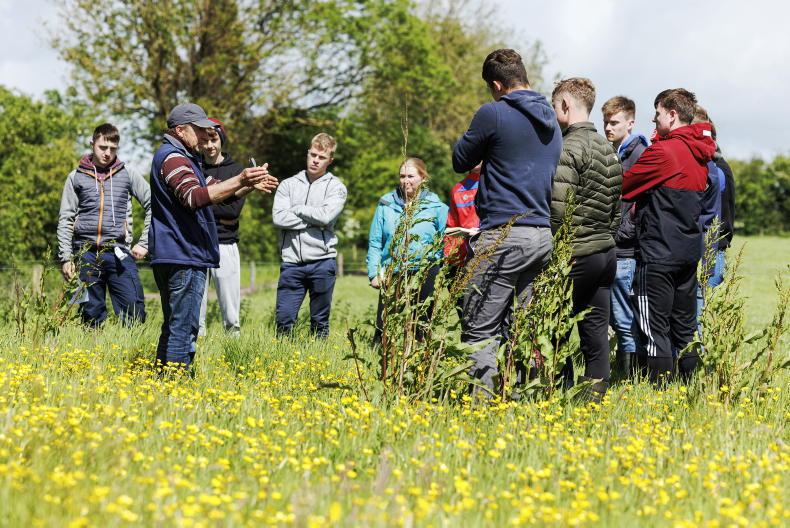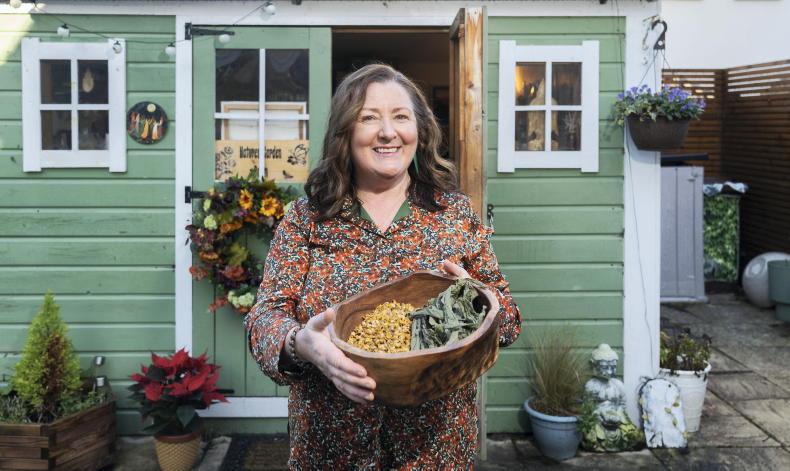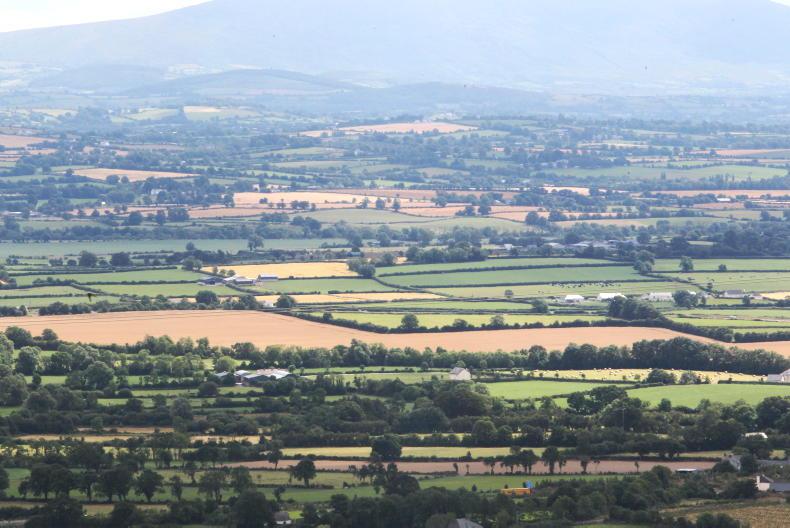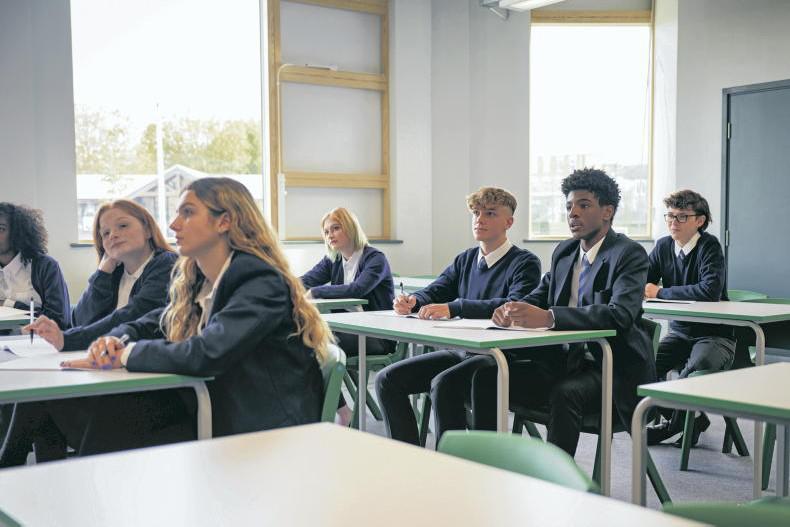Being ‘born and bred’ on a Co Cork dairy farm, Donal Sheehan took the usual route to agriculture. He completed a one-year course in Darrara College in Clonakilty before undertaking an 80-hour management module at Moorepark.
Donal continued farming on his dairy farm but with the increase in herd numbers and production, he wanted to get more value out of the milk being produced on the farm.
“In the last couple of years, the way farming was going, everything was getting bigger and bigger,” he says. “I just wanted to try and get more value for the milk rather than cutting costs all the time and increasing [herd numbers]. I just wanted to look into seeing if I can get more value out of the product that we’re selling.”
Adult education
With a keen interest in ecology, Donal decided to attend University College Cork to complete a course on field ecology. It wasn’t an easy decision to return to college as an adult learner, but he says it really opened up his eyes.
“I don’t know if it is me, but I’d say in general, farmers of my generation wouldn’t have the confidence to go into the third level,” he explains. “I was a bit apprehensive, but when I did that field ecology course in UCC, my God, it really opened my eyes it gave me a lot of confidence.”
Donal took a lot from the course and applied this knowledge as best as he could back on his dairy farm, and this is why he developed the Bride Valley project. “It’s kind of an environmental project,” he explains.
Bride Vally project
As Donal is passionate about conservation, he wanted to push the boundaries of compatible food production and biodiversity systems on his own farm, where he milks 70 cows in an intensive spring calving operation. During his time at UCC, Donal met Tony Nagel – an ecologist and farmer also completing the field ecology course. They put their heads together and drew up the BRIDE Project.
“It came about on the back of the course. We were losing so much biodiversity – I could see it – and I could see the way we were farming, that it was having a negative impact,” he tells Irish Country Living.
The BRIDE Project, short for Biodiversity Regeneration in a Dairying Environment, is an agri-environmental initiative situated within the river Bride catchment, which spans from northeast Co Cork to west Co Waterford.
Co-funded by the European Union and the Department of Agriculture, Food, and the Marine, through the European Innovation Partnership (EIP) funding initiative, the BRIDE Project was delivered from 2018-23 and aimed to design and implement a results-based approach to conserve, enhance and restore habitats within lowland intensive farmlands. The Farming with Nature certificate was developed as part of this project to encourage farms to increase biodiversity and achnowledge current efforts in food production.
Biodiversity acknowledgement
The funding secured through the EIP scheme was used to design the standard, set up a web portal and app and verify the Footprint farms.
The Farming with Nature certification means that the food produced comes from a farm that has set aside a minimum of 10% of their farm to nature. It is a certification for biodiversity that can be verified.
Donal is currently working with artisan producers to highlight the space used in production for nature and biodiversity.
“The next step of the project is liaising with food companies and trying to get producers, especially artisan producers, to buy into it,” says Donal.
There is a local butcher in Fermoy who is certified in farming with nature and working on a specific beef range.

Dairy farmer Donal Sheehan speaks to a group of third year UCC Agricultural Science students on his farm in Castlelyons, Co Cork.
/ Donal O' Leary
“He’s going to bring out a farming with nature beef range before the end of the year, so consumers buying that beef will be assured that it comes from a farm where, in his case, there’s 27% of the farm dedicated to space for nature,” Donal explains.
It encourages people to support farmers who are supported by diversity.
For more information on the project, you can visit thebrideproject.ie/
Diploma in Speciality and Artisan food production
This is one of the reasons why Donal wanted to do the speciality food course in UCC.
“I was looking at diversifying and adding value [with] that Farming with Nature brand that we’re hoping to bring out,” he says. “I just wanted to know how you would market it if you had your own food product, how would you go about setting up a new food product.”
He adds, “I think the days of having all your eggs in one basket are gone.”
Donal found the course very beneficial.
“The microbiology aspect of quality and knowing that if you produce food there are [potential] health issues there. You kind of know it, but it really hit home that you’re producing food for people and there’s standards there,” he says.
The course opened up his eyes as to how difficult it is to start your own food business, but it also prepared Donal to make that decision.
“It’s a chicken and egg situation. You have to invest in equipment; that’s going to cost money. You really are at the mercy of consumers, then, as to whether they’re going to buy it or not. When you’re selling your own product, it really connects you with the people that are buying it,” he says.
Course overview
The diploma in speciality and artisan food enterprises is a one-year blended course, which means it is mostly online with four face-to-face sessions in UCC. Donal says this makes the course more accessible for farmers.
“They’re all recorded, so even if you have to go out to a cow calving, you can you can go back the following day or next week or the week after you have the full recording of the of the lecture,” he explains.
Funding available
Funding of up to 64% of the course fee is available for eligible applicants. This means funding of €1800 towards the fee of €2800 is available to all successful applicants.
The class is made up of people from a wide variety of backgrounds, including farmers, chefs, teachers, and many other professionals. They all have a shared interest and ambition to start or further develop a small food business from the farm, home, or a small production unit.
Advice for going back to college
For any farmer or mature student thinking of undertaking a course, Donal encourages them to just go for it.
“I think farmers don’t realise how educated they are – and I was one of them. When you don’t go to third level as such, I went to college, but that’s still not considered at a third level.
“Farmers have gone through the university of life themselves and they’re all project managers on their own farm. As far as doing courses is concerned, if I can do it – anyone can do it.”
Read more
37 students graduate fromTeagasc dairy calf-to-beef courses
Women and Agriculture Conference 2023
Being ‘born and bred’ on a Co Cork dairy farm, Donal Sheehan took the usual route to agriculture. He completed a one-year course in Darrara College in Clonakilty before undertaking an 80-hour management module at Moorepark.
Donal continued farming on his dairy farm but with the increase in herd numbers and production, he wanted to get more value out of the milk being produced on the farm.
“In the last couple of years, the way farming was going, everything was getting bigger and bigger,” he says. “I just wanted to try and get more value for the milk rather than cutting costs all the time and increasing [herd numbers]. I just wanted to look into seeing if I can get more value out of the product that we’re selling.”
Adult education
With a keen interest in ecology, Donal decided to attend University College Cork to complete a course on field ecology. It wasn’t an easy decision to return to college as an adult learner, but he says it really opened up his eyes.
“I don’t know if it is me, but I’d say in general, farmers of my generation wouldn’t have the confidence to go into the third level,” he explains. “I was a bit apprehensive, but when I did that field ecology course in UCC, my God, it really opened my eyes it gave me a lot of confidence.”
Donal took a lot from the course and applied this knowledge as best as he could back on his dairy farm, and this is why he developed the Bride Valley project. “It’s kind of an environmental project,” he explains.
Bride Vally project
As Donal is passionate about conservation, he wanted to push the boundaries of compatible food production and biodiversity systems on his own farm, where he milks 70 cows in an intensive spring calving operation. During his time at UCC, Donal met Tony Nagel – an ecologist and farmer also completing the field ecology course. They put their heads together and drew up the BRIDE Project.
“It came about on the back of the course. We were losing so much biodiversity – I could see it – and I could see the way we were farming, that it was having a negative impact,” he tells Irish Country Living.
The BRIDE Project, short for Biodiversity Regeneration in a Dairying Environment, is an agri-environmental initiative situated within the river Bride catchment, which spans from northeast Co Cork to west Co Waterford.
Co-funded by the European Union and the Department of Agriculture, Food, and the Marine, through the European Innovation Partnership (EIP) funding initiative, the BRIDE Project was delivered from 2018-23 and aimed to design and implement a results-based approach to conserve, enhance and restore habitats within lowland intensive farmlands. The Farming with Nature certificate was developed as part of this project to encourage farms to increase biodiversity and achnowledge current efforts in food production.
Biodiversity acknowledgement
The funding secured through the EIP scheme was used to design the standard, set up a web portal and app and verify the Footprint farms.
The Farming with Nature certification means that the food produced comes from a farm that has set aside a minimum of 10% of their farm to nature. It is a certification for biodiversity that can be verified.
Donal is currently working with artisan producers to highlight the space used in production for nature and biodiversity.
“The next step of the project is liaising with food companies and trying to get producers, especially artisan producers, to buy into it,” says Donal.
There is a local butcher in Fermoy who is certified in farming with nature and working on a specific beef range.

Dairy farmer Donal Sheehan speaks to a group of third year UCC Agricultural Science students on his farm in Castlelyons, Co Cork.
/ Donal O' Leary
“He’s going to bring out a farming with nature beef range before the end of the year, so consumers buying that beef will be assured that it comes from a farm where, in his case, there’s 27% of the farm dedicated to space for nature,” Donal explains.
It encourages people to support farmers who are supported by diversity.
For more information on the project, you can visit thebrideproject.ie/
Diploma in Speciality and Artisan food production
This is one of the reasons why Donal wanted to do the speciality food course in UCC.
“I was looking at diversifying and adding value [with] that Farming with Nature brand that we’re hoping to bring out,” he says. “I just wanted to know how you would market it if you had your own food product, how would you go about setting up a new food product.”
He adds, “I think the days of having all your eggs in one basket are gone.”
Donal found the course very beneficial.
“The microbiology aspect of quality and knowing that if you produce food there are [potential] health issues there. You kind of know it, but it really hit home that you’re producing food for people and there’s standards there,” he says.
The course opened up his eyes as to how difficult it is to start your own food business, but it also prepared Donal to make that decision.
“It’s a chicken and egg situation. You have to invest in equipment; that’s going to cost money. You really are at the mercy of consumers, then, as to whether they’re going to buy it or not. When you’re selling your own product, it really connects you with the people that are buying it,” he says.
Course overview
The diploma in speciality and artisan food enterprises is a one-year blended course, which means it is mostly online with four face-to-face sessions in UCC. Donal says this makes the course more accessible for farmers.
“They’re all recorded, so even if you have to go out to a cow calving, you can you can go back the following day or next week or the week after you have the full recording of the of the lecture,” he explains.
Funding available
Funding of up to 64% of the course fee is available for eligible applicants. This means funding of €1800 towards the fee of €2800 is available to all successful applicants.
The class is made up of people from a wide variety of backgrounds, including farmers, chefs, teachers, and many other professionals. They all have a shared interest and ambition to start or further develop a small food business from the farm, home, or a small production unit.
Advice for going back to college
For any farmer or mature student thinking of undertaking a course, Donal encourages them to just go for it.
“I think farmers don’t realise how educated they are – and I was one of them. When you don’t go to third level as such, I went to college, but that’s still not considered at a third level.
“Farmers have gone through the university of life themselves and they’re all project managers on their own farm. As far as doing courses is concerned, if I can do it – anyone can do it.”
Read more
37 students graduate fromTeagasc dairy calf-to-beef courses
Women and Agriculture Conference 2023









SHARING OPTIONS